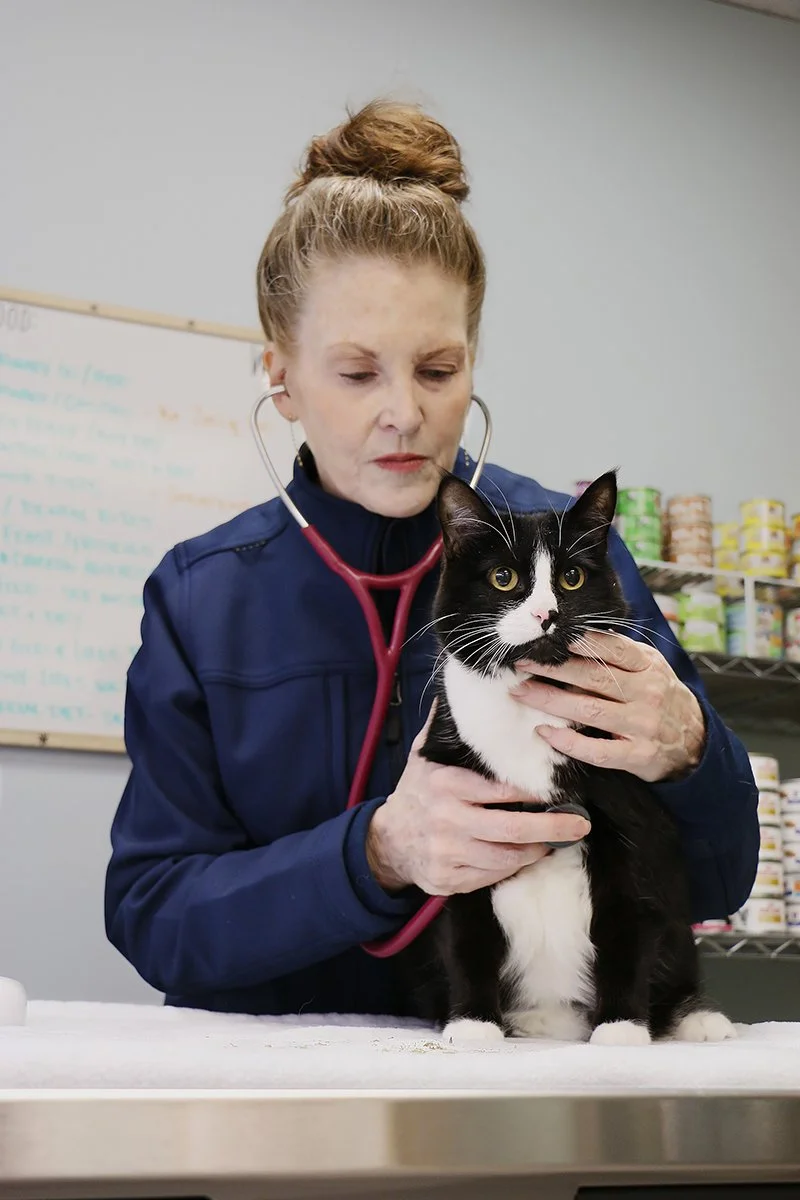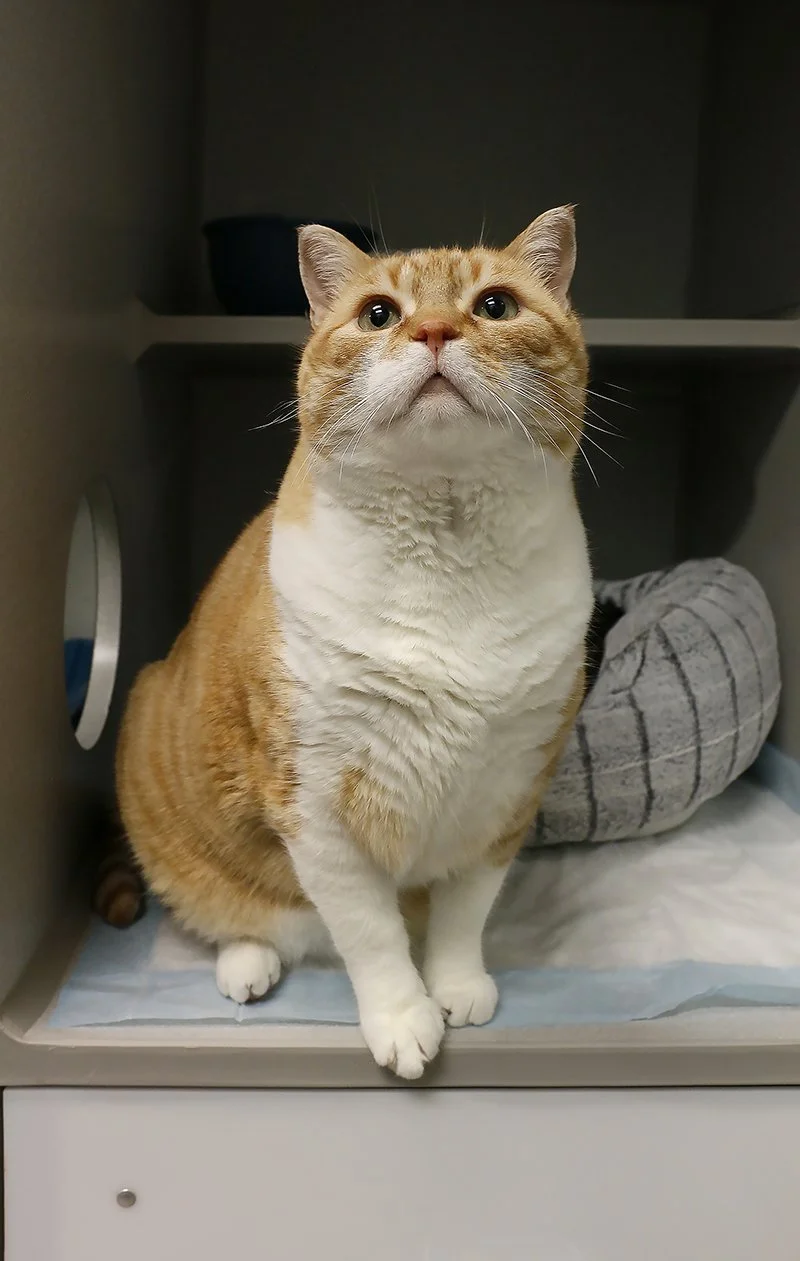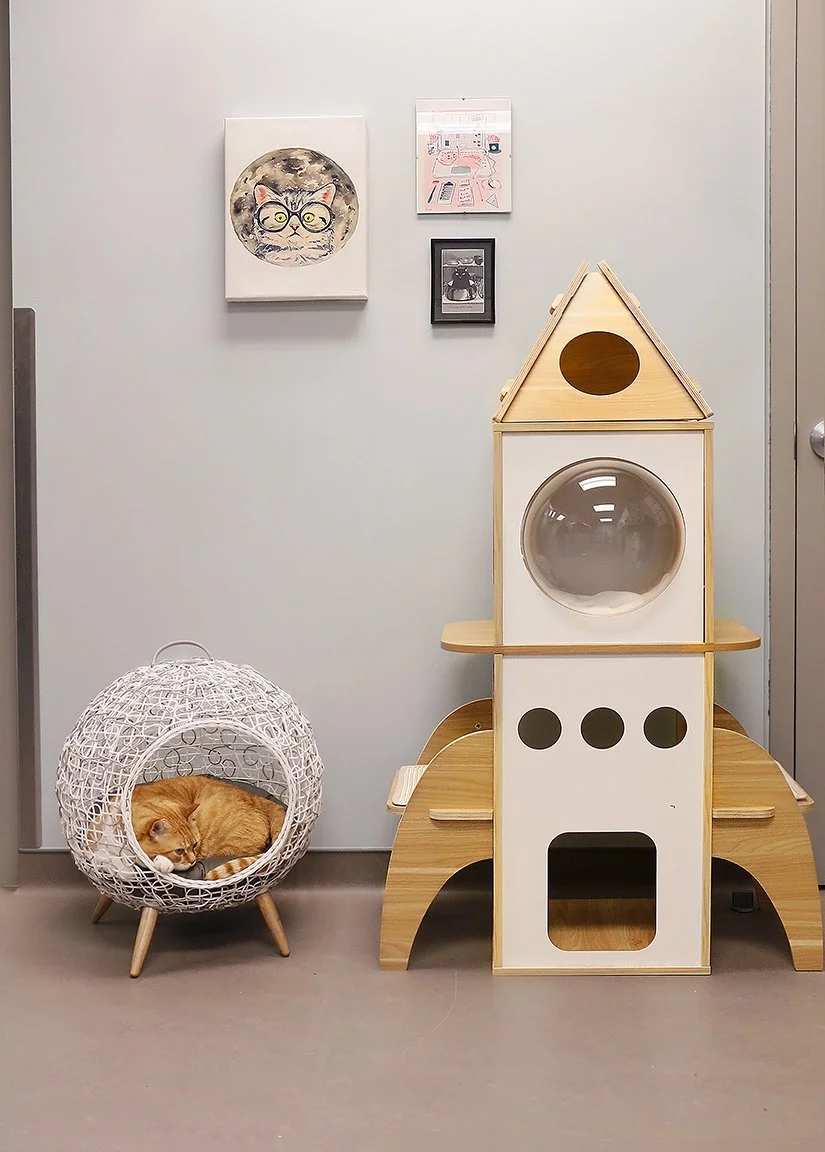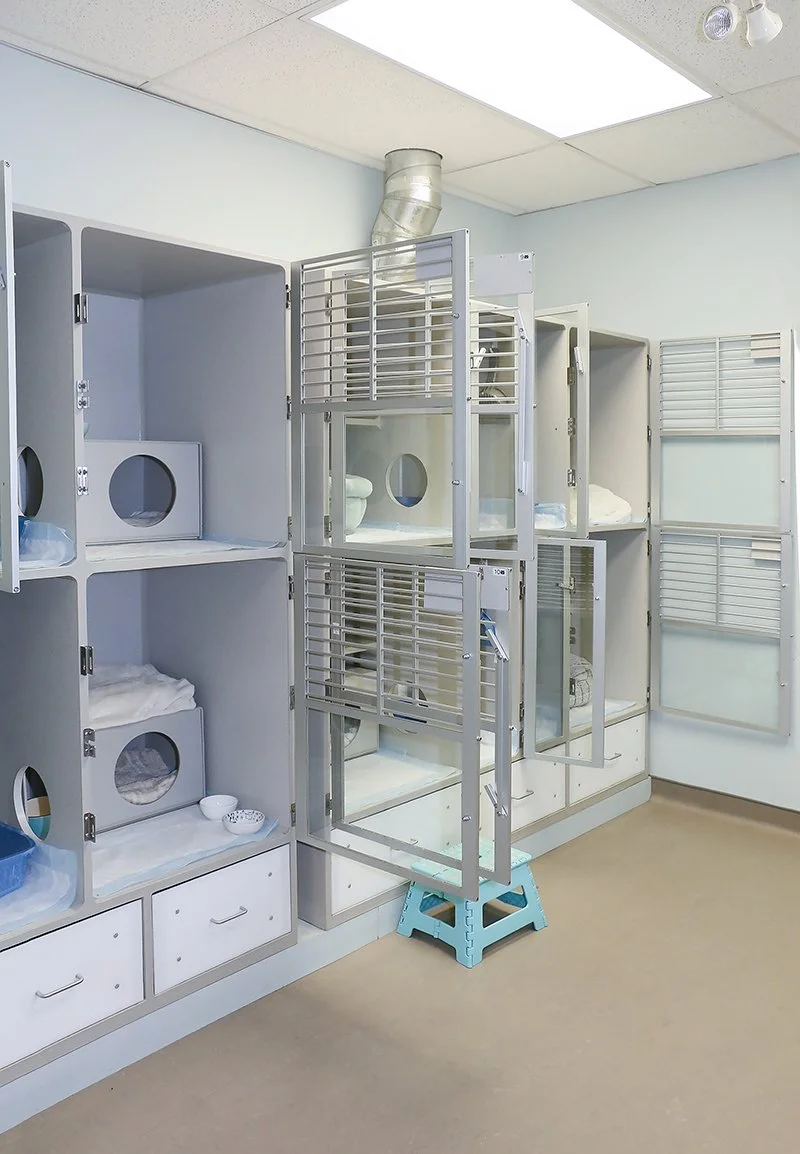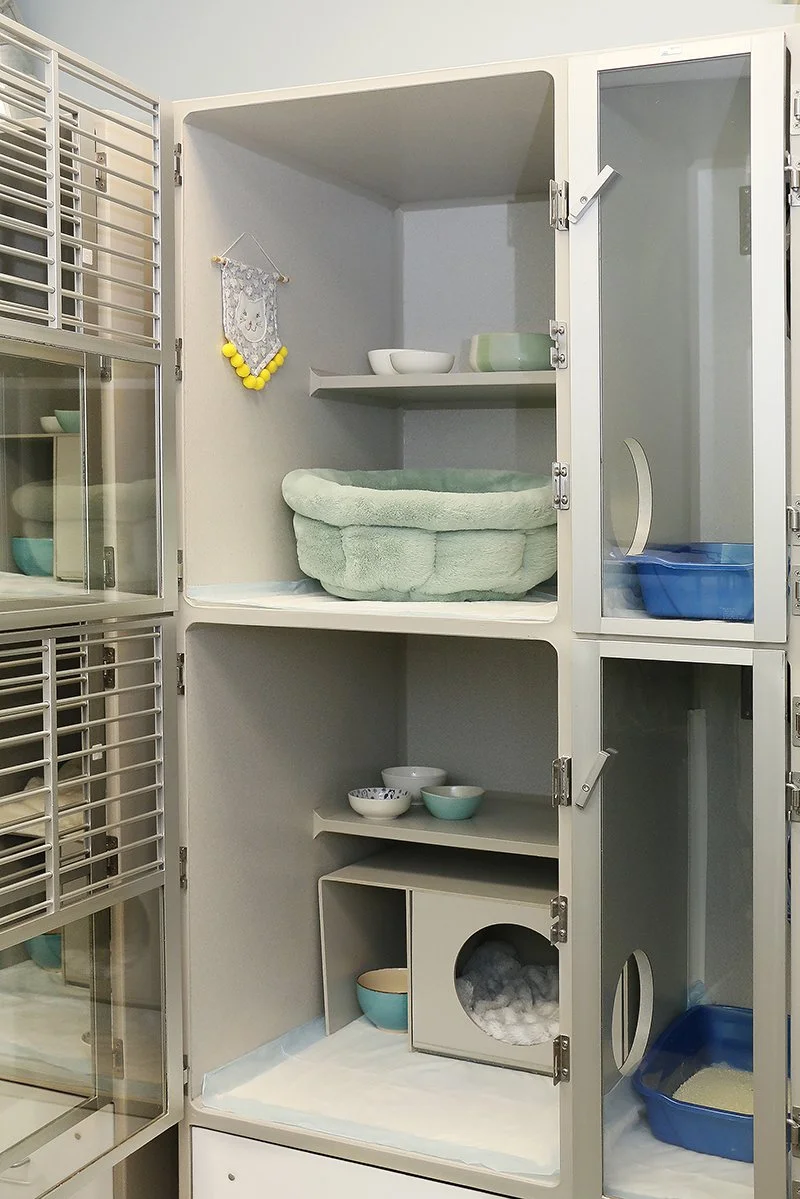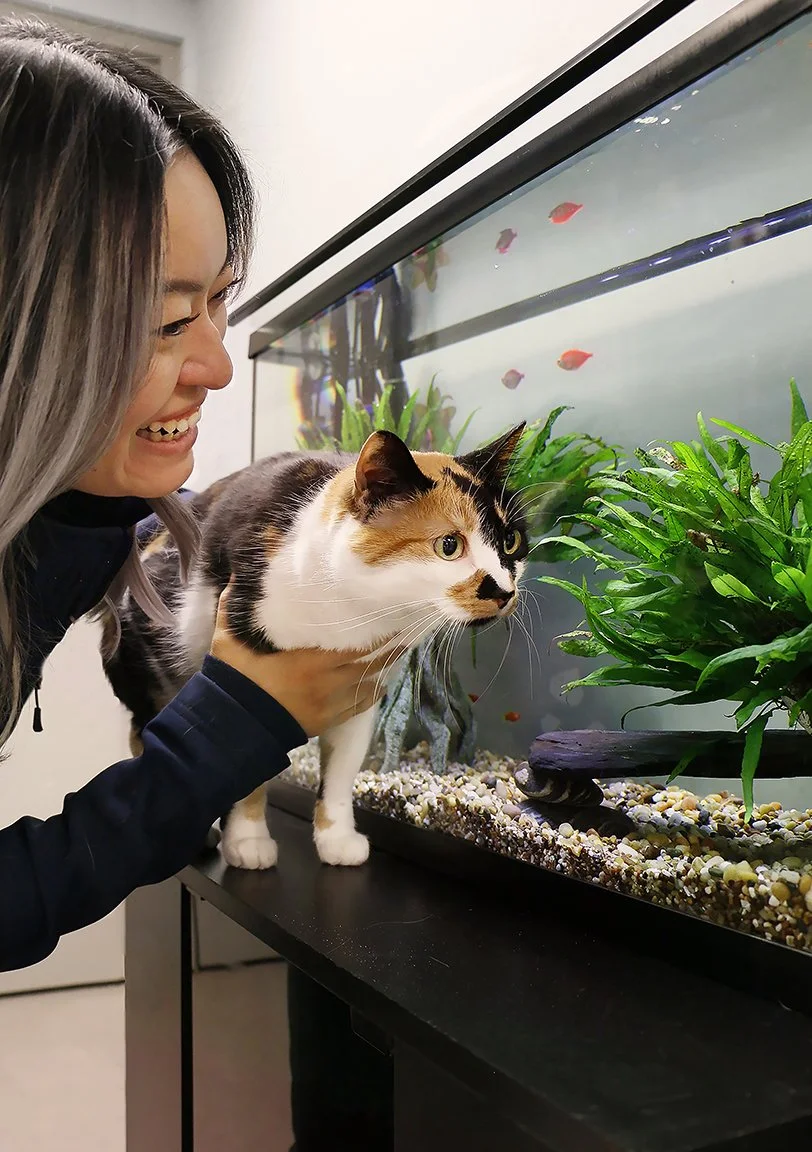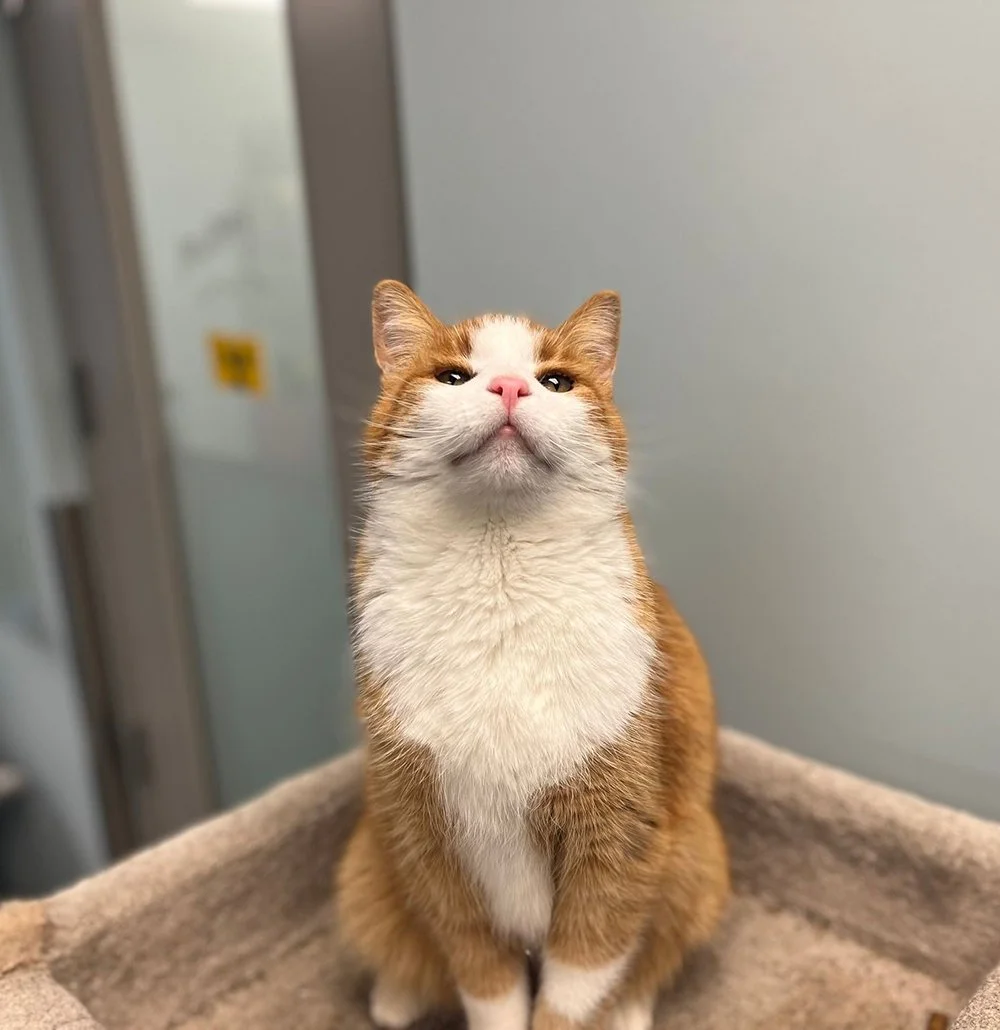
What to Expect as a Client
We understand that the journey from diagnosis to treatment can feel overwhelming for pet owners. That is why we are committed to supporting you and your cat every step of the way.
Our treatment plan includes
Review of your cat’s medical history
Detailed phone consultation
Physical examination
Radioiodine treatment and radiation safety
Hospitalization with daily monitoring and care
Daily updates to you and long term follow-up with your family veterinarian
Hospitalization
The Canadian Nuclear Safety Commission requires that your cat remain hospitalized with us until their radiation levels are safe for discharge. Depending on the iodine dose needed, hospitalization can range from 1 to 10 days, though most cats stay for only 2 to 3 nights.
-
We prioritize making your cat’s stay as comfortable and low-stress as possible. Each kitty condo is individually ventilated, with a separate litter box area and cozy perching shelves or Cat Nap-purrs™ that can be tailored to your cat’s personality and needs.
Throughout their stay, all our cats are given opportunities to spend time individually in the spacious treatment area, complete with multiple cat trees, cozy beds, toys, and a vibrant aquarium to explore and relax. Cats may be fed their usual diet, or we can provide food from our well-stocked pantry, along with fresh, chilled, filtered water. If your cat requires medication or supplements, we will continue to administer them during their stay.
We know, it can be difficult to spend time away from your cat, but rest assured that the long-term health benefits of radioactive iodine treatment far outweigh the brief hospital stay.
To help ease your concerns, we provide daily phone updates on your cat’s progress. Towards the end of each week, we also share photo updates of all our patients on our Facebook and Instagram accounts. Many of our clients are pleasantly surprised to find that their cats adjust even more smoothly than anticipated!
The Cost of Radioiodine Treatment
The total cost* of treatment is $2815.00 to $3115.00 plus GST, which includes review of medical records, consultation and examination by one of our veterinarians, radioiodine treatment, and hospitalization. The range in treatment fees is based on the dosage of I-131 that your cat requires.
The first time cure rate of RAI treatment is approximately 98%, cats that do not cure with the initial dose of RAI will be re-treated at no additional cost.
-
While we can estimate your cat’s dose based on their medical records, the final dose can only be determined by examining your cat in person.
Low dose (18.5 MBq to 147 MBq of I-131);
$2815.00 plus GST
(most cats we treat fall into this range)High dose (148 MBq to 370 MBq of I-131);
$3115.00 plus GST
Payment is due on the day of treatment.*Further charges may occur if any additional tests are required or if medications are dispensed while your cat is in our care.
-
We accept the following forms of payment: VISA, MasterCard, Interac debit, Interac e-transfer, and cash.
-
If you have pet insurance we are happy to fill out the forms required for pre-approval, direct-pay, or for your reimbursement after treatment.
-
We offer financing support from iFinance. If you would like to take advantage of their low-cost financing options, please click this link to visit the iFinance website to learn more about their programs.
Pre-Treatment Care
Your cat’s health and comfort are our top priorities. Included in the treatment fee is a thorough review of your cat’s medical history and lab results. Based on this assessment, we may recommend additional tests or medications to ensure the best possible outcome.
-
A recent blood panel (within the last 2 months), especially if there have been changes in anti-thyroid medication or if your cat is unwell
Chest x-rays to evaluate heart health in cats with long-term hyperthyroidism (over one year) or very high T4 levels (above 175 nmol/L)
-
Echocardiogram if your cat has a history of severe heart disease
Abdominal ultrasound if symptoms suggest another condition affecting long-term prognosis
Gabapentin before the appointment to reduce anxiety and help your cat settle in; we can directly coordinate this with your family veterinarian.
Vitamin B injections and/or potassium supplementation in certain cases before treatment
If your cat is on anti-thyroid medication, a low iodine diet, or iodine-containing supplements, we will discuss how and when to safely withdraw these prior to treatment. Please do not stop any current treatments unless directed by us or your family veterinarian.
-
There is no need to fast; your cat can eat and drink normally until admission
You are welcome to bring a care package from home- such as favourite food and treats, a cozy blanket or bed, and a favourite toy. Please note these items cannot be returned due to radiation safety protocols.
Post-Treatment Care
After returning home, your cat will emit small amounts of radiation from their thyroid gland. They will also eliminate some remaining radiation in their urine and feces. The link below provides simple post-treatment home care instructions mandated by the Canadian Nuclear Safety Commission (CNSC), which involve limiting close contact with your cat for 7 days and flushing or storing litter waste for 14 days.
-
It is important to understand that the level of radiation emitted by your cat following treatment is extremely low. In fact, you are likely to receive more radiation from a chest X-ray or a cross-country flight than from your cat. Therefore, there is no need to isolate your cat from family members or other pets.
The radiation exposure from your cat is not harmful on its own. However, because humans live for many years and are exposed to radiation from various sources over a lifetime, the post-treatment guidelines are designed to help minimize cumulative exposure. In contrast, our pets do not live as long and do not accumulate enough exposure for this amount of radiation to pose any health risks during their lifetime.
-
We request that you return to your family veterinarian to have your cat’s thyroid hormone and kidney levels checked at 1 and 3 months (and possibly 6 months) after treatment. This is to ensure a complete cure and to optimize the best possible outcome for your cat. When your cat is discharged from our hospital, we will send your vet our medical records along with detailed instructions for follow-up care.
Getting your cat here
Lower Mainland residents:
We are centrally located on quiet, tree-lined, Kootenay Street, just off Boundary Road and First Avenue.
For Cat Owners Outside of the Lower Mainland:
Because the travel time is significantly shorter than driving or ferries, we encourage flying your cat for radioiodine therapy. We will arrange for transportation to and from airports so your kitty arrives at our clinic in comfort.


